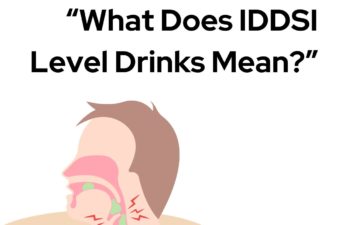In the realm of medicine, certain terms, though not familiar to most people, describe conditions that significantly affect daily life. One such term is dysphagia. So, what exactly is dysphagia? Simply put, dysphagia is the medical term for difficulty in swallowing[^1^].
Understanding Dysphagia
The process of swallowing might seem simple, but it’s actually a complex sequence that involves numerous muscles and nerves. When we swallow, food moves from our mouth, down our throat (or ‘pharynx’), through a long tube (the ‘esophagus’), and into our stomach[^2^].
In a person with dysphagia, this process doesn’t work as it should, making it difficult to swallow foods, liquids, or saliva. Dysphagia can manifest as discomfort in the throat, a feeling of having food stuck in the throat or chest, or even choking on food[^3^].


Causes and Types of Dysphagia
Dysphagia can be caused by various health conditions, both neurological and physical. Stroke, Parkinson’s disease, multiple sclerosis, and other neurological disorders can damage the nerves that control swallowing[^4^]. Conditions such as gastroesophageal reflux disease (GERD) and esophageal cancer can cause physical blockages or changes in the structure of the esophagus[^5^].
The condition is usually categorised into two types: oropharyngeal dysphagia, which is often caused by problems in the muscles and nerves used to swallow, and esophageal dysphagia, resulting from irritation or blockages in the esophagus[^6^].
Living with Dysphagia
Living with dysphagia can be challenging and may require significant dietary and lifestyle adjustments. However, there are treatments available, including speech and language therapy to help improve muscle control, dietary changes, and in some cases, surgery[^7^].
For individuals with dysphagia, consuming regular liquids can be particularly problematic. As such, Refreshment Systems Ltd has developed an innovative dysphagia drinks machine, which produces beverages suitable for various dysphagia levels as specified by the International Dysphagia Diet Standardisation Initiative (IDDSI).
Conclusion
Understanding dysphagia is essential, not only for those who live with the condition but also for their caregivers and loved ones. With continued research and advancements in technology, the management of dysphagia is continually improving, offering hope for a better quality of life.
[^1^]: Mayo Clinic, Difficulty Swallowing
[^2^]: National Institute on Deafness and Other Communication Disorders, Swallowing Disorders
[^3^]: NHS, Swallowing problems (dysphagia)
[^4^]: National Institute of Neurological Disorders and Stroke, Swallowing Disorders Information Page
[^5^]: Johns Hopkins Medicine, Swallowing Disorders
[^6^]: Mayo Clinic, Oropharyngeal Dysphagia
[^7^]: American Speech-Language-Hearing Association, Adult Dysphagia




